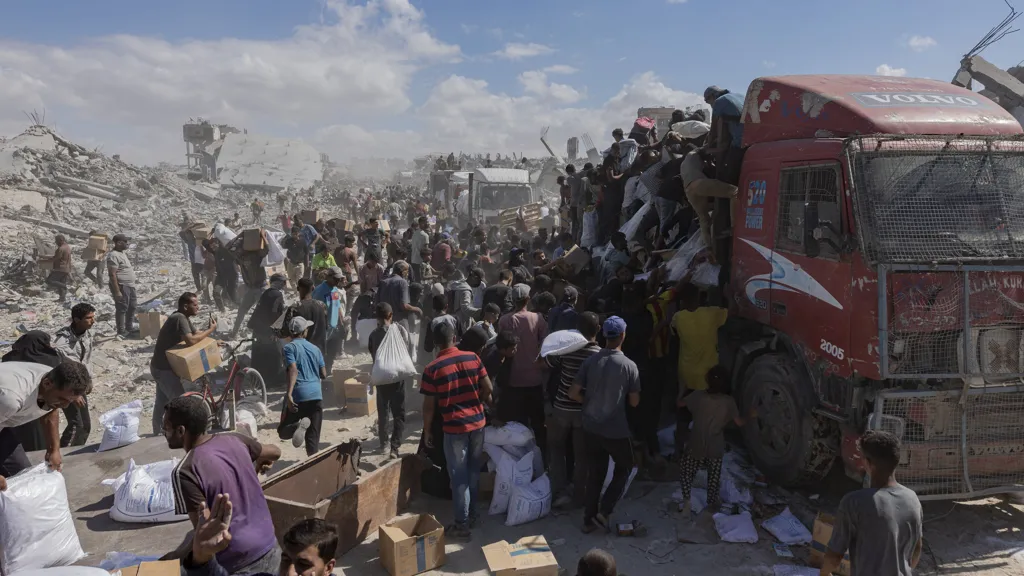The cease-fire agreement reached last week contained stipulations for an increase of aid into the territory, where it had been sharply curtailed.
The United Nations said in a statement on Sunday that "real progress" was being made in delivering aid to Gaza as the cease-fire agreement between Israel and Hamas paved the way for humanitarian agencies to scale up their operations in the territory.
The United Nations' Office for the Coordination of Humanitarian Affairs said in a statement that its aid efforts were "well underway." Gaza is in the grips of a deep humanitarian crisis after food supplies and other aid had been sharply curtailed since the conflict began.
"The easing of restrictions on movement and access in multiple areas" had allowed the agency to deliver medical and emergency supplies where they were most needed and support displaced families to prepare for winter, the agency said.
Cooking oil had entered the territory for the first time since March, and tents, flour, frozen meat, fresh fruit and medicines crossed into Gaza throughout the day on Sunday, the agency said. It added that, alongside its partners, it had distributed hundreds of thousands of hot meals and bread bundles in the north and south of the territory.
Humanitarian aid has been one of the most bitter flashpoints of the war. A U.N.-backed panel of food experts said parts of Gaza were officially under famine, and aid groups have accused Israel of imposing onerous rules and restrictions on what items can enter Gaza.
Israel has rejected the panel's findings. Israeli officials have said they allowed enough food into the territory but claimed, without proof, that much of it was systemically stolen by Hamas.
The U.N. said in its statement on Sunday that it had also secured Israeli approval for more aid to move forward, including water, shelter, medicine and other supplies.
Tom Fletcher, the top U.N. humanitarian official, said last week that almost the entire population of Gaza needed some form of food aid, including 500,000 people who needed treatment to address the effects of famine. The agency had a plan to scale up delivery of aid over the first 60 days of the cease-fire, he said.
The U.N. plans to send hundreds of trucks into the territory each day to provide food, increase efforts to provide shelter, establish more health care sites and dispatch emergency medical teams into Gaza, and help repair basic municipal services like clean water, a functioning sewage system and garbage pickups, Mr. Fletcher said.
